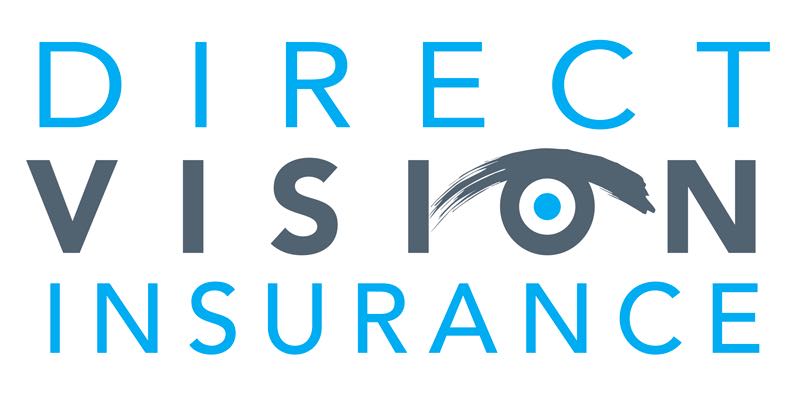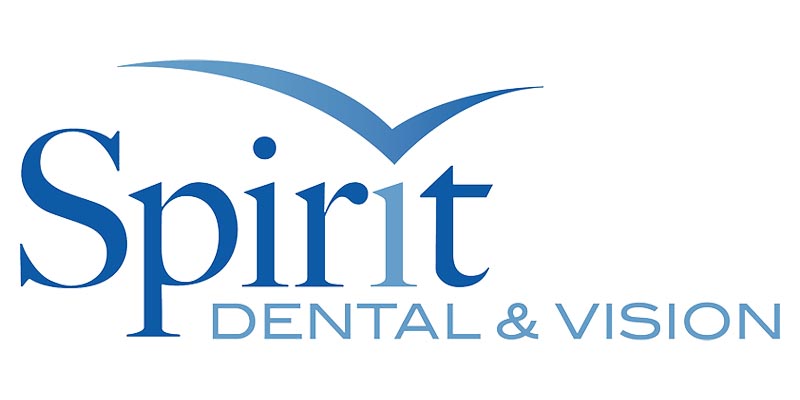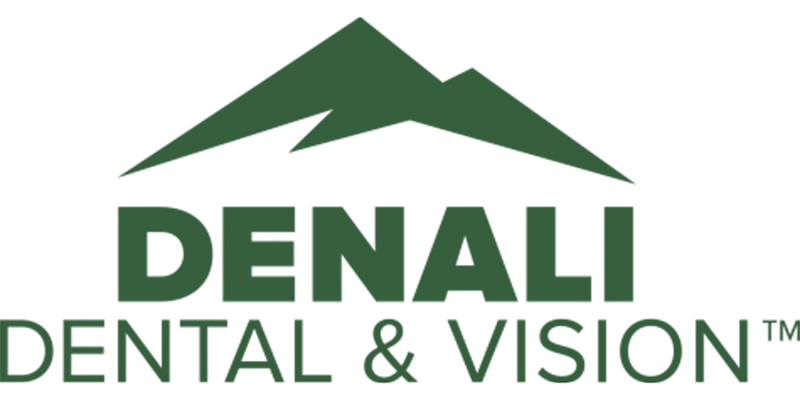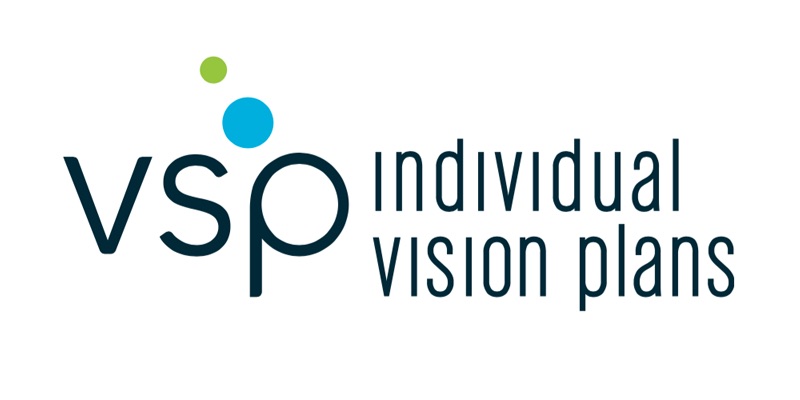Best Vision Insurance for Seniors 2024
Updated:
Retirement Living takes an unbiased approach to our reviews. We may earn money when you click a partner link. Learn More
Retirement Living analyzed 11 vision insurance plans to determine the best vision insurance for seniors. After consulting with licensed insurance experts and evaluating each provider’s offerings, we identified the best vision insurance companies for coverage, costs, and vision allowances such as glasses, exams, and contacts.
Direct Vision Insurance
- Great guarantee
- Choice of EyeMed or VSP vision plans
- No waiting to use benefits
After choosing from one of four vision insurance options, you can use a Direct Vision plan immediately. The company offers a Customer Satisfaction Guarantee, and you can cancel coverage at any time the first 30 days.
Spirit Vision
- Great combo coverage
- $50 lifetime deductible on lenses and frames
- Low copays
Spirit Vision is an add-on to Spirit Dental Care insurance, a company offering plans with low monthly premiums. With Spirit Vision insurance, you can buy a second pair of glasses at a 40% discount off the cost and monthly premiums range from $7 to $20.
Denali Vision
- Great add-on service
- Bundle discount
- Plan variety
Denali Dental and Vision is a dental insurance company providing various levels of care for customers, to better serve their customers, Denali allows customers to bundle their dental and vision insurance to ensure they are receiving the necessary services in one place.
VSP Vision Care
- Great provider network
- Large network of doctors
- Typical savings of $200 per year
Tens of thousands of providers accept VSP Vision Care insurance. VSP vision insurance is ideal for retirees, with low rates, high allowances for glasses and contacts, as well as hearing aids, LASIK, and travel.

UnitedHealthcare
- Simple choices
- Select from one of two vision insurance plans
- Stand-alone vision plans available
offers a standalone vision plan or an add-on to its dental plans. Choose one for glasses or contact lenses, and another for both eyeglasses and contacts. The premiums are affordable with conveniently-located in-network providers in retail stores and private practices.
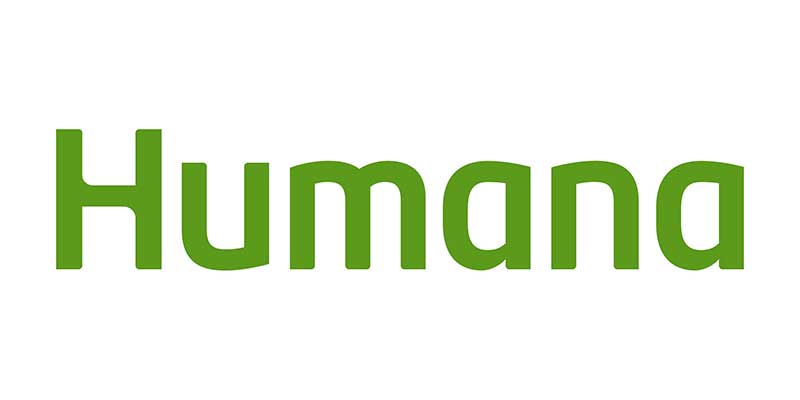
Humana Vision Insurance
- Great Medicare Advantage option
- Same allowance for glasses or contact lenses
- Backed by the strength of the third largest health insurance provider
Humana offers a variety of vision insurance plans, and the vision coverage add-on for Medicare Advantage is especially notable. The allowance for frames and lenses or contact lenses is comparatively high with exceptional in-network benefits.
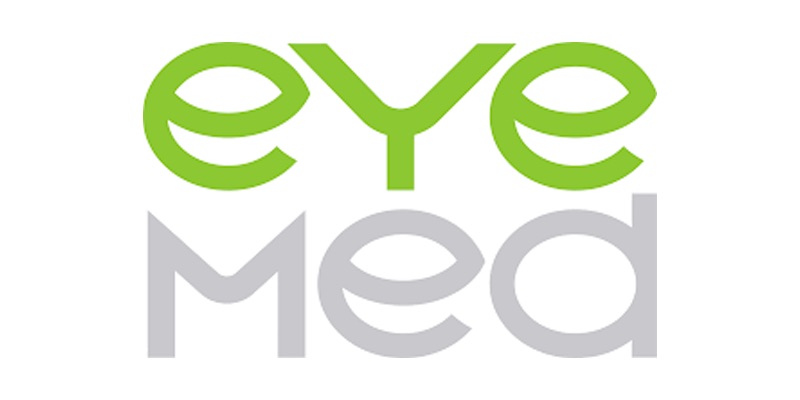
EyeMed
- Easy online application
- Easy to use website
- Vision plan explanations available online
EyeMed makes finding vision insurance easy on their website by fully explaining each of the three plan benefits and costs. Plans include competitive pricing with providers all over the country, and also provides LASIK discounts.
Methodology
Retirement Living analyzed 11 vision insurance plans to determine the best vision insurance for seniors. Each vision insurance plan was evaluated based on the following key metrics, which we determined after consulting with licensed insurance experts:
- Cost (premiums, deductibles)
- Senior plan types (individual, individual +1)
- Exam, glasses, contacts, bifocal/trifocal copays
- Frames/Contacts allowance
- Network availability
Specifically, we evaluated member plans that would be most valuable to seniors. This excluded family plans, as most seniors likely won’t have dependents who qualify.
Compare Top Vision Insurance Companies
| Provider | Network | Premiums | Allowances |
|---|---|---|---|
| Direct Vision Insurance | EyeMed Access or VSP Choice | $11–$16 for individuals $20–$30 for individual +1 (may vary by zipcode) | -150 for frames or contacts -Additional discounts vary by plan |
| Spirit Vision | EyeMed (100,000+ providers and locations) | $7 for Individual coverage $14 for Individual +1 | -$20 lens or contacts deductible -Up to $130 frames or contact lens -Discounts for additional purchases |
| Denali Vision | Renaissance Vision (120,000+ access points) | $12 for Individual $24 for Individual +1 | $25 copay, plus: -$130 every 12 months for frames, copays and discounts on lens enhancements -$60 copay for contact lenses evaluation and fit, then $130 |
| VSP Vision Care | 36,000+ providers | $13 – $31 for individual $26 – $59 individual +1 | $150 or $230 frame or contact lens allowance |
| UnitedHealthcare | Spectera, Inc (120,000+ access points) | Starting at $13 per month | -$10 copay for lenses -Up to $150 for frames or contacts per year |
| Humana Vision Insurance | 95,000 locations | $10 or $0 if using a PLUS network provider | -Up to $250 allowance for frames or contact lenses -$10 copay for eyeglass lenses with in-network provider |
| EyeMed | 100,000+ providers and locations | Starting at $5 – $30 per month | Up to $200 allowance for frames or contacts |
Should Seniors Buy Vision Insurance?
While certain Medicare plans offer coverage for things like annual exams or glasses, most do not offer comprehensive vision coverage. Therefore, buying vision insurance as a senior can be worth it if you go to the doctor more than twice a year because the deductibles, copays, or allowances could be more affordable than paying out of pocket. In some instances, a vision discount plan may be a better option than vision insurance. As always, check whether your preferred providers are in your desired plan before purchasing vision insurance.
Expert Buying Tip:
Still trying to decide whether vision insurance is worth it? Consider how much it would cost to maintain your eye health without insurance and compare that to the cost with vision insurance. We outlined some cost comparisons below. Keep in mind that some things, like designer frames, can cost a lot more, and prices can vary significantly in different areas and retailers.
Vision Insurance Plans and Providers, Reviewed
After our evaluation, we chose the best vision insurance companies: VSP Vision Care Insurance, Humana Vision, EyeMed Vision Care, and UnitedHealthcare Golden Rule Vision Insurance. Each of these insurance providers stood out among the competition.
Direct Vision Insurance
Great guarantee
Direct Vision Insurance offers two networks, EyeMed Access and VSP Choice, each with a Plan A or B available. Rates and allowances vary by plan, network and whether you want an individual plan or one that covers two people. You can view plan details and enroll online or call Direct Vision to discuss your options and enroll in a plan. Discount types and amounts vary by plan but expect to pay a $15 deductible for annual eye exams.
- Coverage: Individual or Individual +1
- Network: EyeMed Access or VSP Choice
- Monthly premiums: $11-$16 for individuals, $20-$30 for individual +1 (may vary by zipcode)
- Exam copay: N/A, $15 deductible every 12 months
- Allowances: $150 for frames or contacts, deductible may apply, additional discounts vary by plan
To learn more, compare plan options with Direct Vision.
Spirit Vision
Great combo coverage
Spirit offers an add-on vision plan to accompany its individual and family dental insurance plans. Its optional vision coverage is available in select states through the EyeMed network. Eye exams through an in-network provider are available every 12 months, but contacts, frames and lenses are only covered every 24 months. You’ll have to pay in full and file a claim if you prefer to use an out-of-network provider, and reimbursements are much smaller. For example, you’ll only pay a $10 deductible for in-network eye exams, but EyeMed will only cover up to $25 for out-of-network providers.
- Coverage: Individual or individual +1
- Network: EyeMed (100,000+ providers and locations)
- Monthly premiums: $7 for Individual coverage, $14 for Individual +1
- Exam copay: N/A, $10 deductible every 12 months or up to $55 in coverage for contact lens exam
- Allowances: $20 lens or contacts deductible, up to $130 frames or contact lens allowance, discounts for additional purchases
To learn more, compare plan options with Spirit Vision or read our comprehensive review.
Denali Vision
Great add-on service
Denali Dental offers add-on vision coverage through Renaissance Vision, administered by VSP, which has the largest national network of independent doctors. Plans include annual coverage for an eye exam, prescription glasses or contacts. Copays, allowances and discounts apply, depending on total cost of frames, lenses or contacts. You can also get discounts on additional glasses, sunglasses or contact lenses.
- Coverage: Individual or individual +1
- Network: Renaissance Vision (120,000+ access points)
- Monthly premiums: $12 for Individual or $24 for Individual +1
- Exam copay: $10 every 12 months
- Allowances: $25 copay plus $130 allowance every 12 months for frames, copays and discounts on lens enhancements, $60 copay for contact lenses evaluation and fit, then $130 allowance
To learn more, compare plan options with Denali Vision or read our comprehensive review.
VSP Vision Insurance Review
Great provider network
VSP offers vision plans for one person, two people or a family. Each plan has a $15 annual exam copy, and you can choose from the Standard, Enhanced or EasyOptions plan to determine which allowances and lens enhancements best fit your needs. VSP members get access to other benefits to improve health and wellness, including discounts on LASIK, hearing aids, exercise programs and travel.
- Coverage: Individual or individual +1
- Network: 36,000+ providers
- Monthly premiums: $13 – $26 per month; $26 – $59 individual +1
- Exam copay: $15 every 12 months
- Allowances: $150 or $230 frame or contact lens allowance
To see personalized plans and pricing, visit VSP’s site or read our comprehensive VSP review.
Humana Vision Insurance Review
Great contact allowance
Humana offers a standalone vision plan or a bundle that includes dental, vision and hearing coverage. Its standalone plan, Humana Vision Plus, covers routine eye exams, contact lenses and eyeglasses. The bundle plan includes either exam coverage only or coverage similar to the standalone plan, with three options available. Humana vision insurance is available nationwide and in Puerto Rico and the U.S. Virgin Islands, except for Hawaii and Washington.
- Coverage: Individual
- Network: 95,000 locations
- Monthly premiums: Varies by plan
- Exam copay: $10 or $0 if using a PLUS network provider
- Allowances: up to $250 allowance for frames or contact lenses, $10 copay for eyeglass lenses with in-network provider
To learn more, read our comprehensive Humana vision review.
EyeMed Vision Care Review
Great for LASIK discounts |
EyeMed offers three vision plans for individuals, two people or a family. Premiums and coverage vary by plan and state, with many offering a 5% discount if you pay premiums annually. EyeMed has over 100,000 network providers to choose from but also provides coverage for out-of-network providers. You can also get discounts for additional prescription glasses, non-prescription sunglasses and LASIK corrective surgery.
- Coverage: Individual and families
- Network: 100,000+ providers and locations
- Monthly premiums: starting at $5 – $30 per month
- Exam copay: $0 or $10, depending on plan
- Allowances: up to $200 allowance for frames or contacts
UnitedHealthcare Vision Insurance Review
Simple choices
UnitedHealthcare offers a standalone vision plan or an add-on to its dental plans. The VisionWise standalone plan administered by Spectera, Inc. is available in most states, offering same-day coverage, free in-network eye exams, a $10 copay for lenses and a $150 allowance for frames or contact lenses each year. There may be plan variations that differ by state.
- Coverage: Individual and families
- Network: Spectera, Inc (120,000+ access points)
- Monthly premiums: starting at $13 per month
- Exam copay: $0
- Allowances: $10 copay for lenses, up to $150 for frames or contacts per year
What Does Vision Insurance Cover?
Although vision insurance plans and what they cover can vary, most vision insurance policies provide coverage for:
- Annual eye exams
- Contacts or eyeglass lenses
- Eyeglass frames
- Discounts for lens enhancements such as blue light coatings, anti-glare, scratch-resistant coatings and UV protection
- Discounts for additional prescription eyewear that exceeds the plan allowance
Some plans only cover contacts or a pair of glasses per year, not both. Some companies, like Spirit Vision, only cover contacts or glasses every other year.
If you wear both and want coverage for both in the same year, be sure to compare vision policies carefully and check the fine print to see what’s covered and when. For example, the UnitedHealthcare VisionWise plan will cover both frames and contact lenses once per year, with up to $150 in allowances each.
What Does Vision Insurance Not Cover?
Vision insurance doesn’t cover medical care, such as allergies, eye diseases, infections or dry eyes. Your health insurance policy will cover these conditions, so having a separate healthcare plan and vision insurance is essential.
Though some exceptions exist, your vision plan also won’t cover non-prescription eyewear, like safety or gaming glasses. For instance, EyeMed members can get a 20% discount for non-prescription sunglasses if they purchase them through an in-network provider.
Vision insurance companies also consider corrective surgeries, like LASIK or photorefractive keratectomy (PRK), elective procedures and will not cover them. However, most of the best vision insurance companies offer discounts for these procedures. EyeMed and Humana, for example, provide a 15% discount for either surgery provided you get it done in the U.S. Laser Network provider.
How to Buy Vision Insurance
Buying vision insurance is easy after you’ve chosen the plan that best fits your needs. You can apply online or call the insurance company to start your policy. Many plans start the same day you apply and pay your first premium.
Here are the steps to take to buy vision insurance.
Compare Plan Types and Companies
The only way to find the right plan is to compare the different policy offerings, companies and network access. Although most vision plans offer the same coverage types, some notable differences are outlined above.
Vision insurance can help you afford annual eye exams that you might put off otherwise. If you wear contacts or glasses, think about how often you’d like to get new frames or lenses and how much they cost to help you narrow down which plan is the best option. Designer frames cost more, so if you prefer more expensive frames, consider a plan with a higher annual allowance.
Get a Quote
Getting a vision insurance quote is easy and should only take a minute or two on the provider’s website. You usually only have to put your age, birth date, state or ZIP code to get a quote.
Apply for Coverage
Now that you have your quote and know how much you’ll need to pay to start your vision plan, it’s time to apply. Fill out the application completely, including the date you want your coverage to begin. Make your first payment and save your policy documents until you receive your plan.
Use Your Vision Insurance Plan
You can use your benefits on your policy effective date, even if you’ve had an eye exam within the last year. If your policy doesn’t go into effect until later, you can still schedule an eye exam—just be sure you get seen on the effective date or later.
Also, make sure the eye doctor is in-network with your insurance carrier so you can take advantage of the in-network benefits and not have to pay in full and submit a claim for reimbursement with an out-of-network provider.
Questions to Ask When Choosing Vision Insurance
- Eye Exams: Are full exams covered once each year? Is there a copay for eye exams?
- Pre-existing Conditions: Are any pre-existing conditions not covered?
- Lens Coverage: Is there a payout cap for bifocal, trifocal, or specialty lenses like those for photophobia? Is there an allowance for contacts every year?
- Frames: How much is the frame allowance for glasses? Is the allowance annual or every two years? Are frame adjustments covered between exams? Can I choose any frames I want?
- Contact Lenses: How much does the policy pay for contact lenses? Can I receive benefits for contacts and lenses in the same year? What is the cap on contact lens fitting fees?
- Lens Enhancements: Are enhancements covered such as no line, anti-glare, light sensitive, computer glasses?
- Sunglasses: Are prescription sunglasses covered? What about non-prescription sunglasses?
- Choice of Provider: Where is the nearest in-network provider located? Is prior approval required if I go out of network?
- Coverage Limits: Is there an annual maximum insurance payout?
- Premium: What is the annual cost for vision insurance? Do I receive a discount if I pay annually instead of monthly?
- Waiting Period: How long must I wait before using my vision benefits?
How Much Does Vision Insurance Cost?
Vision insurance plan costs vary by where you live, how old you are, who is covered, the insurance company and the plan type. Generally speaking, vision insurance is among the most affordable types of insurance you can buy for the savings it offers for prescription contacts or eyeglass wearers.
Individual plans start at $5 per month for add-on coverage, though you should expect to pay $13 or more for standalone policies. Based on our evaluations, we sourced the following pricing for vision plans:
- A plan through Direct Vision is between $11 and $16
- UnitedHealthcare and VSP Vision plans start at $13
- Humana Vision Plus plan can be as little as $12 per month, depending on where you live.
Plans that cover an individual and their spouse cost roughly double what the single plan costs. For example, an EyeMed Bold individual plan costs $17.50, but adding a spouse costs $35 per month.
Eye Exam
Regular eye exams with dilation are crucial for seniors. The CDC recommends getting an annual or bi-annual exam to check for diseases that can cause blindness or permanent loss of vision:
- Age-related macular degeneration
- Cataracts
- Diabetic retinopathy
- Glaucoma
The average eye exam costs about $200 without vision insurance. That doesn’t include frames, lenses, contacts or the fitting and follow-up for contacts.
With vision insurance, you might not pay anything for an exam, even if you add coverage to a dental plan. For example, Direct Vision only charges an annual $15 deductible, while Denali Vision charges a $10 copay for a yearly exam.
If you choose an in-network provider, UnitedHealthcare will cover the entire cost of your annual eye exam. You’ll either have no copay or a $10 copay with an EyeMed plan, depending on which one you choose, and the same goes for Humana Vision insurance.
Eyeglasses
Prescription glasses can range from $50 to over $1,000, especially when choosing designer frames. The average cost is around $195 without insurance. Most vision insurance companies offer an allowance for frames and may provide an additional discount for the overage.
For example, UnitedHealthcare VisionWise covers up to $150 for in-network providers or up to $75 for non-network providers with no further discount. If you get the EyeMed Bold or Bright plan, you’ll get an allowance of $130 or $200, then a 20% discount on the balance. The Healthy Vision plan doesn’t provide an allowance but gives a 35% discount on the retail price.
Single-vision Lenses
Single-vision lenses cost, on average, $110 without enhancements if you don’t have vision insurance.
Most vision insurance plans only require a lens copay if you go to an in-network provider. Here are some examples:
- Humana charges a $10 copay, or you’ll get a $25 allowance if you choose an out-of-network provider.
- United Healthcare’s VisionWise plan is similar but has a $40 allowance for non-network providers.
- With Eyemed, you’d pay a $20 copay with the Bold or Bright plan or a $55 allowance with the Healthy plan.
Progressive Lenses
The cost of progressive lenses can vary widely for people without vision insurance, averaging around $300 but costing upwards of $600.
With the VSP Standard plan, you’d pay no more than $175 for no-line multifocals or up to $55 with the Enhanced plan. The add-on plans can also provide significant savings. For instance, you’d pay a $55 copay with a Denali vision add-on or $25 if you’re okay with lined lenses.
Lens Enhancements
Adding coatings and other enhancements to your prescription lenses increases the price but can also help your lenses last longer. Costs without vision insurance vary widely by location, retailer, other enhancements and whether the retailer offers a discount or promotion. The table below shows the average costs for different enhancements with and without vision insurance.
| Lens Enhancement | Average Cost Without Vision Insurance | Cost With EyeMed Bold insurance | Cost With Humana Vision PLUS plan | Cost With VSP Standard plan |
|---|---|---|---|---|
| Scratch resistant | $30 | $0 copay | $0 | $33 |
| Anti-reflective coating | $152 | $40 | $25–$68 | $85 |
| UV protection | $30 | $0 copay | $0 | $16 |
| Tint | $75 | $0 copay | $0 | $17 |
Contacts
Contact costs vary significantly depending on how often you change them and the material they’re made of. The average annual cost of daily contacts is between $600 and $900 without insurance, while annual contacts only cost around $100. Toric lenses cost around $400 per year.
Vision insurance companies usually cover glasses or contacts annually or every other year, but not both. For example, VSP’s Standard and Enhanced plans will cover frames or contacts at a $150 annual allowance. Humana will cover contacts in lieu of lenses up to $200 for disposables, but you can get an additional 15% discount on the overage for conventional (longwear) contacts, provided you go to an in-network provider.
Frequently Asked Questions About Vision Insurance
Does Medicare cover vision insurance for seniors?
Original Medicare doesn’t cover vision insurance, eye exams, glasses or contacts. If you have Medicare Part B and have diabetes, the plan will cover annual exams to check for diabetic retinopathy. If you are at high risk for glaucoma, it will also cover yearly glaucoma tests. Medicare Part B may also cover 80% of medical costs for eye damage resulting from an injury or illness. Some Medicare Advantage plans, like those available through Humana, provide coverage for routine eye exams, glasses or contacts.
Does vision insurance cover LASIK or PRK?
Vision insurance doesn’t cover LASIK or PRK, but some plans provide discount benefits for eye correction surgeries. If you plan to have either elective surgery, consider a plan offering a discount to help cover the cost. Just make sure you find a specialist within the plan provider’s network, usually the U.S. Laser Network.
What is the best vision insurance for glasses?
The best vision insurance for glasses is through Humana or VSP. Humana offers up to $250 per year for frame allowance and a 20% discount on the balance with no copay. The VSP EasyOptions Plan includes your choice of one of three upgrades, one of which increases the $150 base allowance to $230.
What is the best vision insurance for contacts?
When comparing vision insurance for contacts, consider the allowance for lenses, the copay for the exam and any extra cost for lens fit and follow-up. For example, EyeMedBold and Bright Vision Benefits plans have a $10 copay for the exam and up to a $210 allowance for lenses. You’ll pay up to $40 for the fit and follow-up appointment. Humana will cover up to $200 for contacts and 15% of the balance over $200 for conventional contacts (no overage for disposables). A standard lens fit and follow-up is free.
When is vision insurance a good investment for seniors?
Vision insurance is best for seniors who wear prescription eyeglasses or contacts, as they’ll benefit most from a plan. However, you can still benefit from vision insurance since an eye exam can cost over $100 or more.
If you can’t afford an eye exam, vision insurance is probably worth it. Humana’s best dental and vision insurance bundle may be the most cost-effective option, as it covers vision, dental and hearing expenses in one plan. The Humana Extend 1250 plan starts at $41 per month and covers one exam per year for free. If you want coverage for glasses or contacts, consider the 2500 or 500 plan.
Concluding Thoughts
Bottom Line: Get quotes from at least three vision insurance companies to compare premiums and out-of-pocket costs with the savings provided. Use our list of questions to gather the details you need to know before buying vision insurance.
Vision insurance keeps costs down for eye exams and corrective lenses every year, and premiums are typically inexpensive. This insurance is widely available as add-on coverage, stand-alone vision insurance, or through employers.
| Vision Insurance Company | Best For | |
|---|---|---|
| 1 | Direct Vision Insurance | Great Guarantee |
| 2 | Spirit Vision | Great Combo Coverage |
| 3 | Denali Dental | Great Add-on Services |
| 4 | VSP Vision Care Insurance | Great Provider Network |
| 5 | UnitedHealthcare Golden Rule Vision Insurance | Simple Choices |
| 6 | Humana Vision Insurance | Great Medicare Advantage Option |
| 7 | EyeMed Vision Care | Easy Online Application |
